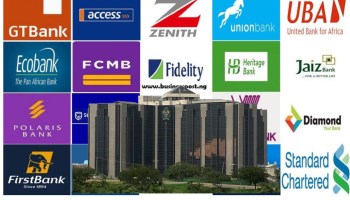With a population of 99 million Muslims, the largest in the region, Nigeria offers the strongest potential for growth of Islamic finance in sub-Saharan Africa despite penetration of sharia products still lagging at 1 per cent of the country’s total banking industry.
This is according to global ratings agency Moody’s, which also lists Egypt, Morocco, Sudan, South Africa and Senegal as the African countries expected to lead growth in Islamic banking in the coming years.
“Most of these countries have large Muslim populations, a history of sukuk issuance and have made, or are making, the legal adjustments required to accommodate shariah-compliant finance,” Moody’s said in a new report.
According to data from the Islamic Financial Services Board, Kenya ranked ahead of South Africa, Nigeria and Tanzania in terms of penetration of Islamic banking services.
In Africa, Sudan has the highest penetration of sharia-compliant financial services at 100 per cent.
The update by Moody’s indicates that despite major economic crises faced by many economies as a result of Covid-19 last year, Islamic financial markets defied the odds by expanding, adding that there has been a vast financial need on the continent due to strong demographic and economic growth in Muslim-majority countries, as well as growing government interest in the sector.
“There are more than 80 Islamic financial institutions in Africa, many of which have been licensed in the past decade. In addition to Islamic financial institutions, a number of well-established conventional banks across Africa have set up Islamic departments or windows at which they offer Shariah-compliant products,” Moody’s says.
Some of the banks with sharia-compliant units include Absa (South Africa), Ecobank (Chad) and Sterling Bank (Nigeria). In Kenya, National Bank, Absa, KCB, First Community Bank and others offer Islamic banking services.
“We expect Islamic finance to continue rising in 2021 and beyond, maintaining its now long established growth trend. The industry generally remains underrepresented in countries with large Muslim populations, providing ample room to expand,” said Ashraf Madani, Moody’s Vice President and Senior Analyst.
He projected that global sukuk issuance would stabilise in 2021 to around $190 billion-$200 billion, following issuance of nearly $205 billion in 2020.
Moody’s also expects the takaful (insurance) market to expand steadily as premiums rise moderately in the next 2-3 years in newly penetrated markets. The firm bases the projections on conducive digitisation and regulatory improvements in the new markets.
Saudi Arabia is the largest market for Islamic finance globally, with financing assets valued at $361 billion as of September 2020, from $323 billion in December 2019.




